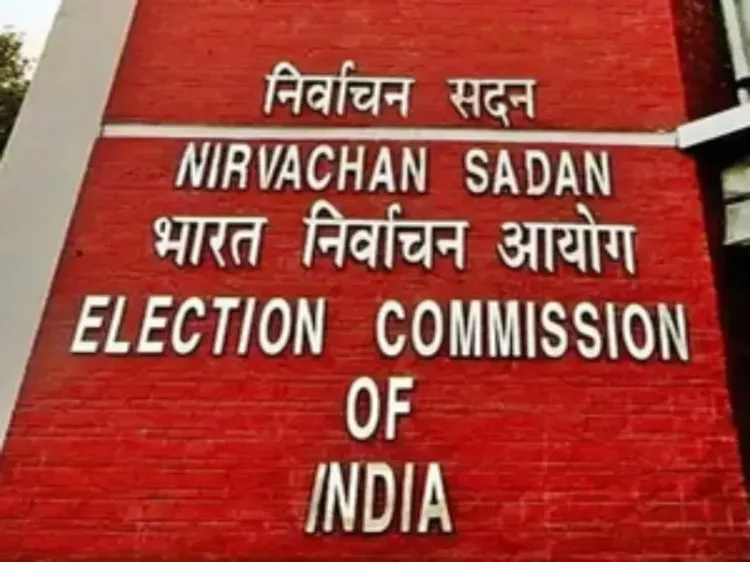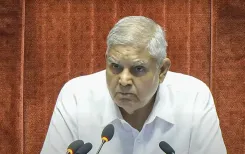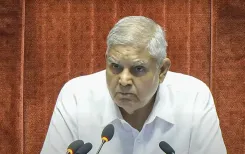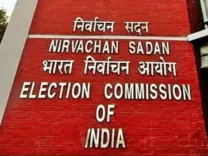Have Forms from 90.12% of Electors Been Collected? ECI Informs SC

Synopsis
Key Takeaways
- The ECI has collected enumeration forms from 90.12% of the electorate in Bihar.
- The SIR process is essential for electoral integrity and public trust.
- Political parties support the SIR initiative, recognizing its importance.
- Voters can still seek inclusion in the final roll after the draft is published.
- Final electoral rolls will be published on September 30, 2023.
New Delhi, July 22 (NationPress) The Election Commission of India (ECI) has informed the Supreme Court that as part of its Special Intensive Revision (SIR) of the electoral rolls in Bihar, it has successfully gathered enumeration forms from 90.12 percent of the electorate.
In an affidavit submitted to the apex court, the electoral body stated that by July 18, forms from 7.11 crore out of the 7.89 crore registered voters in Bihar had been collected. After accounting for deceased individuals, those who have permanently relocated, and voters registered in multiple locations, the collection phase of the SIR has effectively encompassed 94.68 percent of the nearly 7.90 crore electorate in Bihar.
The ECI noted that all political parties have recognized the importance and accuracy of the SIR process, showing cooperation and engagement to ensure its timely completion.
The electoral body indicated that it undertook this SIT initiative, the only legally sanctioned method under the current legal framework for a thorough, grassroots preparation of the electoral rolls, to restore public trust and address concerns regarding the presence of names of deceased individuals, relocated voters, and non-citizens in the electoral rolls.
In response to petitioners who argued there was no justification for such an intensive revision in a state preparing for elections in a brief timeframe, the ECI explained, “As this is a nationwide initiative, it was essential to initiate the SIR in Bihar, which is scheduled for elections in mid-November, to maintain the integrity of the electoral roll and eliminate ineligible voters.”
The ECI believes that the accuracy and completeness of the electoral roll are vital for democracy, and it has a constitutional obligation to ensure its integrity.
The commission stated that the entirety of the petition challenging the SIR process relies on media articles and columns, which are “full of misleading information,” claiming there has been a deliberate attempt to distort the narrative against the SIR and portray the ECI unfavorably.
“It is well established that newspaper articles do not serve as credible evidence for the facts presented within. This Hon'ble Court has ruled that judicial notice cannot be taken of facts and figures stated in a newspaper as they are merely hearsay secondary evidence,” the affidavit added.
It further expressed that the articles cited by the petitioners to create a narrative of exclusion should be “completely disregarded,” and such an unacceptable approach would not warrant any consideration from the Supreme Court.
Labeling the challenges against the June 26 decision of the commission directing the SIR as “premature,” the ECI asserted that the claims made in the petitions are entirely unfounded.
“The claim of excluding any eligible voter based on suspicion is entirely incorrect and untenable. The SIR process is inclusive, and every effort has been made by the ECI and its officials to guarantee that no eligible voter is excluded from the electoral roll,” the affidavit stated, emphasizing that there are “multiple layers of checks at all stages of the process,” and no elector's name will be removed from the rolls without due process and adherence to principles of natural justice.
The ECI reiterated that it has made every effort to ensure that no eligible voters are excluded from the electoral roll, with a “special focus” on marginalized groups, the elderly, the poor, and the sick to facilitate their enrollment whenever possible, including through the assistance of volunteers to gather eligibility documents.
According to the ECI, each elector who has submitted their enumeration form, regardless of document submission, will be included in the draft roll set to be published on August 1. If any elector has not yet submitted their enumeration forms, they can still seek inclusion in the final roll by submitting a claim in the approved format along with a declaration.
“Consequently, any individual excluded from the draft roll has another chance to be included by submitting the form with the declaration and required documents. This claims period is extended for an additional thirty-one days after the draft roll's publication, concluding on September 1, 2025,” the ECI explained.
Upon completion of the entire process, the final electoral roll will be published on September 30. The ECI also stated that even after the final roll is published, new voters can be enrolled until the last date of nominations for the upcoming Assembly elections in Bihar.
“This process is ongoing for every election to maximize voter inclusion. Any fears regarding substantial disenfranchisement are, therefore, misleading and unfounded,” concluded the affidavit.






